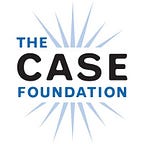Meet the Entrepreneur who is making Clinical Trials Digital and Affordable
After a series of successful tech ventures, Cassie Wallender decided to use entrepreneurship to tackle her frustrations with the clinic trials process.
More than $21 billion is spent on clinical trial data management every year. Yet more than 80 percent of clinical trials run behind schedule and over budget, says Cassie Wallender, co-founder of Invio Inc, a Seattle-based startup using digital technology to expedite the trial process and make it more cost-effective.
“Most people’s eyes glaze over when we explain the problem and the solution. When we’ve gone to startup pitch events, I’ve personally found it challenging to reduce a very complex product for a heavily regulated niche space into a 60-second pitch going up against consumer focused startup ideas. It’s not like we’re building Uber for socks here. But we really are trying to change the world by propelling medical innovation,” she says.
That product is called Invio SourceDrive, which allows users to remotely manage and monitor trial data. Currently, researchers have binders full of paperwork for each participant in a clinical trial, she explains. For the phase III trial, that could be thousands of binders, each kept at a hospital or a clinic for the study. To compare data, a study monitor is responsible for traversing back and forth between dozens of sites to compare if the data recorded on paper matches the data in an electronic data capture system. “This process takes an average monitor more than 400 hours a year and adds up to more than 20 percent of the cost in average trial,” Wallender emphasizes.
Invio’s product gets rid of these costs, and streamlines the process by making it completely digital. The prototype has already been put to the test.
“When we tested our first prototype with research professionals they asked, ‘When can I have this?’” she says. “That’s when we knew we were onto something.”
They used the customer feedback repeatedly, building ten major iterations of the prototype before coding it. “Many startups avoid talking to potential customers until it’s too late to apply the learning inexpensively,” she notes.
The low-cost factor with Invio is resonating with customers, Wallender says. “We can impact about a third of the clinical operations cost so we’ve found contract research organizations and startups are most keenly interested.”
Wallender is part of a four-person team that has been tinkering away on this digital solution since April 2016. Wallender, who oversees the product development at Invio, came to the startup after a series of successes in tech. iLike, a social music recommendation service, was acquired by MySpace for over $20 million, and Appature, where she was the Senior Manager of Product Design, was acquired by IMS Health for $100 million. Last year, she won the “Excellence in Innovation” award from IMS Health.
The idea for Invio was born in 2015 when one of Wallender’s dear friends, Dema Poppa, was describing his deep frustrations with the inefficiencies of managing large, multi-center clinical trials, and the lack of FDA-compliant solutions. Since she was already working on software in the life sciences industry, and he had a research background, the two decided to work together to find a technology-driven solution to improve data quality for clinical trials. Poppa now serves as CEO and Wallender is Chief Product Officer.
“We recruited two other co-founders and the four of us bootstrapped entirely for our first year, taking no salary and paying for all expenses out of pocket as we developed our product,” she recalls.
Now as they scale this venture, Wallender and her colleagues have begun the process of raising a seed round. They won at The Seattle Angel Conference, received supported from the female-focused Pipeline Angels, and are identifying individual angels to complete the round. “We look for investors who have experience and can help us further than a cash investment alone,” she notes.
Wallender does stand out as the only female in a team of four. But she says her all-male team is “nothing but awesome and supportive.” It’s not always the same for investors: “Externally, I’m seeing some investors and investor groups trying to change the perception that you have to be a certain gender, sexuality, race, age or of a privileged socio-economic background to be successful. I hope as they see great returns, the rest of the market takes note.”
Despite her positive outlook, Wallender says that even she is subject to sexism at times. “It’s easy to identify when someone is plainly inappropriate, and that happens. It’s much harder to know if someone is dismissive or disrespectful because you’re a woman, or only showing interest because you’re a woman. Those are tougher situations.”
Her response to these challenges? Find the good apples who believe in the company’s mission — and they do generally outweigh the bad ones — even if they require some serious searching.
This article is part of a special series curated by the Case Foundation and written by journalist Esha Chhabra, who has written for such publications asForbes, the Guardian and the New York Times. The series spotlights innovative entrepreneurs who are changing the image of who is and can be an entrepreneur. Tell us about a founder who inspires you via social media using #FacesofFounders.
